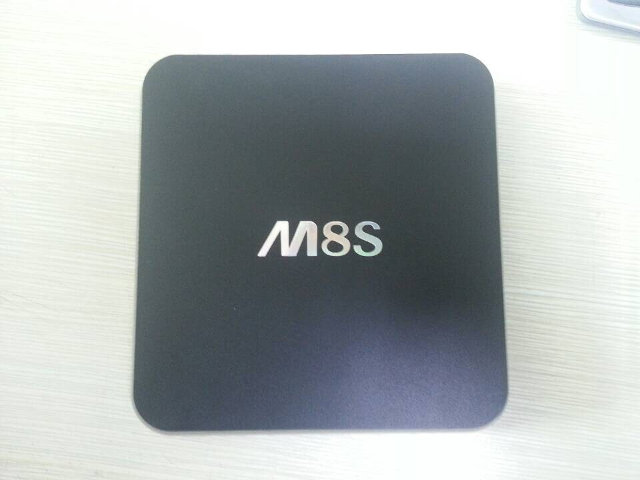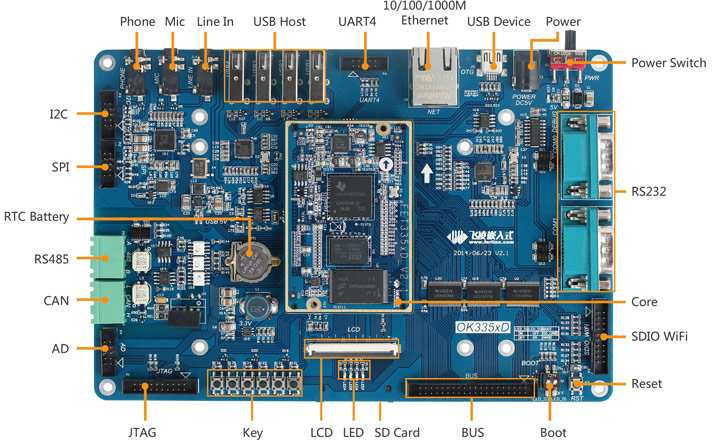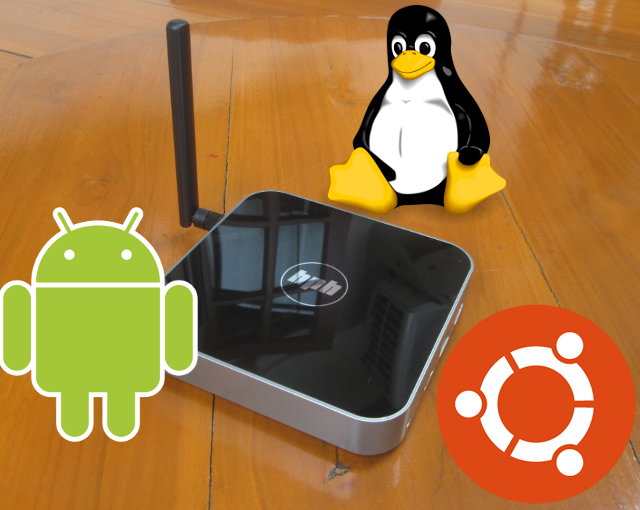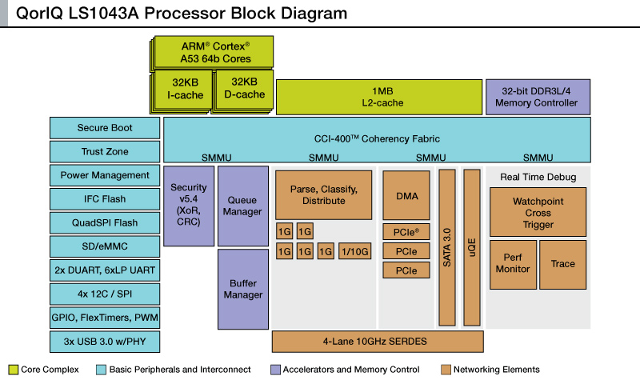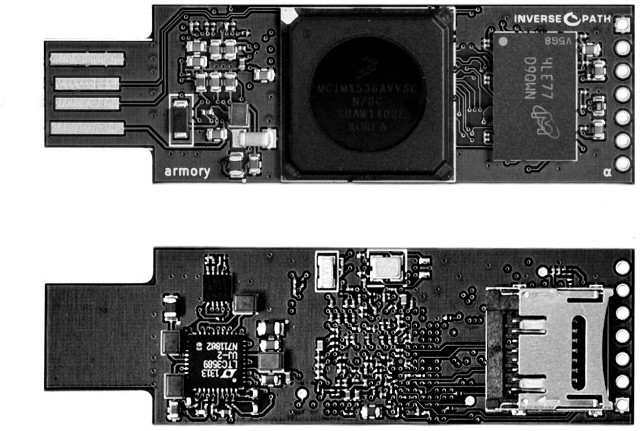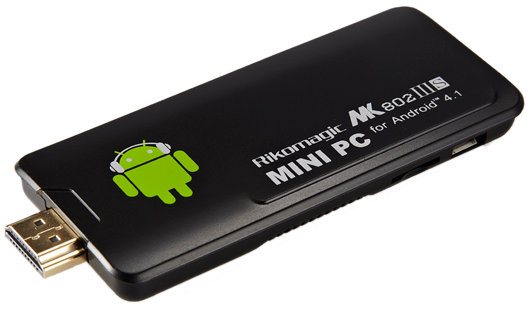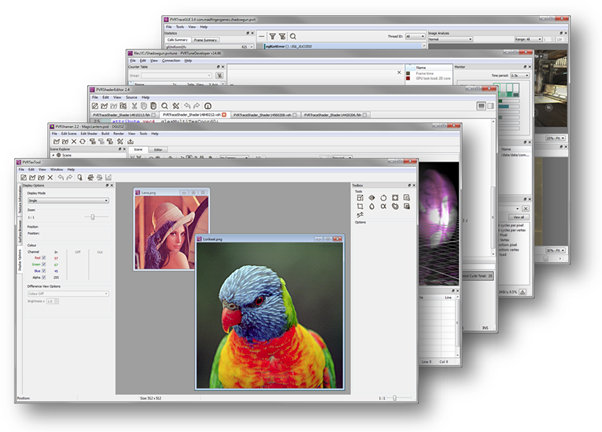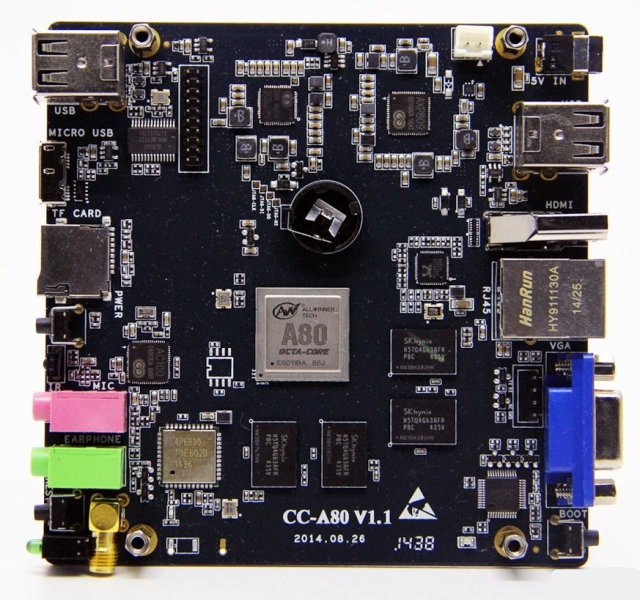The first Amlogic S812 Android TV box I had seen was Xtreamer Wonder which should start shipping for 99 Euros ($140) by the end of the month, but they’ll have some competition as Eny Technology will soon manufacture M8S and M8C Android media players, also based on the same quad core Cortex A9 processor, with 4K UHD video output and HEVC/H.265 hardware video decoding. M8S and M8C have the same technical specifications except that the former comes with 2GB RAM, and the latter with 1GB RAM: SoC – Amlogic S812-H quad core cortex A9r4 @ 2 GHz with octa-core Mali-450MP6 GPU @ 600+ MHz System Memory – 1GB (M8C) or 2 GB (M8S) DDR3 Storage – 8GB NAND flash + micro SD card reader Connectivity – 10/100M Ethernet, dual band 802.11 b/g/n Wi-Fi, Bluetooth 4.0 Video Output – HDMI 1.4 up to 4K2K @ 30 Hz, AV port Audio Output […]
Forlinx OK335xD Industrial Single Board Computer Supports Android, Linux and WinCE
Forlinx, an embedded systems design and manufacturing company based in Hebei province in China, has announced OK335xD industrial (temperature) single board computer powered by Texas Instruments Sitara AM335X processor, and which appears to be a high-end version of their OK335xS-II SBC with more ports. Potential applications include communication devices, medical equipment, automotive computers, control panels, data acquisition devices, industrial control, industrial automation equipment, and more. OK335xD single board computer is composed of a CPU module (FET335xD), and a baseboard simply called “OK335xD Base Board”. Listed specifications for FET335xD computer-on-module: SoC – Texas Instruments Sitara AM3354 Cortex A8 processor @ 800MHz with PowerVR SGX530 GPU System Memory – 512MB DDR3 Storage – 256MB SLC NAND Flash Interfaces available via CoM connector: 1x USB 2.0 Host; 1x USB2.0 OTG Ethernet Dual Gigabit Ethernet 3x MMC 3x I2C, 2x SPI, 6x UART / IrDA Various GPIO pins 8x ADC 2x CAN LCD Interface […]
Preliminary Dual Boot Android & Ubuntu Firmware for Nagrace HPH NT-V6 TV Box (Rockchip RK3288)
Nagrace NT-V6 TV Box is powered by Rockchip RK3288 processor, and in my review I found the hardware to be pretty good, although some progress had to be done on the firmware. The company is still focus on perfecting Android firmware for NT-V6 and Firefly-RK3288 development board, but in meantime, they’ve released a dual boot image capable of running either Android 4.4 or Ubuntu (14.04?). To give it a try download HPH-RK3288-Android-Ubuntu_20140924.rar. I haven’t been able to try it myself, because Google Drive download is extremely slow today. Once the download is complete, you’ll probably need to flash the firmware using Rockchip AndroidTools (windows) or upgrade_tool command line utility (Linux). The dual boot firmware is based on Android firmware 1.3.9 released on September 30, plus an Ubuntu root file system. It’s not overly convenient to use Ubuntu, because you need to enter recovery mode by inserting a sharp oject (e.g. […]
Freescale Unveils QorIQ LS1043A Quad core ARM Cortex A53 Communication Processor for Fanless Networking Equipment
Freescale has introduced the QorIQ LS1043A communications processor, powered by four 64-bit ARM Cortex A53 cores, and destined to be integrated into “intelligent-edge networking equipment including security appliances, SDN (Software Designed Networks) / NFV (Network Functions Virtualization) edge platforms and other fanless, power-efficient applications.” A dual core version named LS1023A is also available. Key features of LS1043A and LS1023A SoCs: CPU – Quad (LS1043A) or Dual (LS1023A) ARM Cortex-A53 64-bit cores @ 1 GHz to 1.5 GHz with 32/32 I/D Cache KB L1 and 1 MB L2 cache. 16,000+ CoreMarks. Networking & High Speed Interfaces: Up to six 1x GbE or 1x 10GbE and five x GbE Four lane SerDes up to 10 GHz multiplexed across controllers supporting: Three PCI Express Gen 2 interfaces SATA 3.0 Interface uQUICC Engine Accelerators and Memory Control DPAA (Data Path Acceleration Architecture) Parse, Classify and Distribution Engines Integrated security engine 32-bit DDR3L/4 controller Other peripherals 3x […]
USB Armory is an Open Source Hardware Freescale i.MX53 Dongle for Security Applications
Most computers-on-a-stick come with an HDMI port, and a few USB ports, but Inverse Path’s dongle is quite different. USB Armory is a flash drive sized computer powered by Freescale i.MX53 Cortex A8 processor with only a USB port and a micro SD slot, that targets security applications such as mass storage devices with automatic encryption, virus scanning, host authentication and data self-destruct, VPN routers, electronic wallets, password managers, portable penetration testing platforms, and so on. USB Armory specifications: SoC – Freescale i.MX53 ARM Cortex-A8 @ 800Mhz with ARM TrustZone System Memory – 512MB DDR3 RAM Storage – microSD card slot USB – 1x USB host port. USB device emulation: CDC Ethernet, mass storage, HID, etc. Expansion Header – 5-pin breakout header with GPIOs and UART Misc – customizable LED, including secure mode detection Power – 5V via USB (<500 mA power consumption) Dimensions – 65 x 19 x 6 […]
Rikomagic MK802 IIIS Dual Core HDMI TV Stick Sells for $14
Yet again, sellers are trying to get rid off their old stock, and today Rikomagic MK02 IIIS HDMI TV Stick powered by Rockchip RK3066 sells for $14.40 on Aliexpress for the next four hours, but if you miss it, you can also buy from another seller for $17.99. Both prices include worldwide shipping, and the sellers have good feedback. MK802 IIIS specifications: SoC – Rockchip RK3066 dual core Cortex A9 @ 1.6Ghz + Mali-400MP4 GPU System Memory – 1GB RAM Storage – 8 GB NAND flash + micro SD slot (up to 32GB) Connectivity – Wi-Fi 802.11 b/g/n + Bluetooth 3.0 Video Output – HDMI (male) USB – 1x USB Host 2.0, 2x micro USB for power and OTG port The package includes the mini PC, a USB cable for power, an OTG adapter, a short male to female HDMI cable, and user’s manual. It’s said to run running Android […]
PowerVR SDK v3.4 Supports WebGL, 64-Bit Android 5.0 Lollipop, and MIPS Linux
Imagination Technolgies has just released PowerVR SDK v3.4 including the latest compilers for PowerVR Series6 and Series6XT GPUs to PVRShaderEditor, several performance optimization, a new WebGL SDK, 64-bit support for Android 5.0 Lollipop, and Linux support for MIPS based processors. The company has revamped the user interfaces of their tools, and made the following key changes: PVRTrace, a tool to capture and analyze OpenGL ES and EGL API calls, now supports OpenGL ES 3.1, compressed trace files, and they’ve reduce the software memory usage PVRTune, a performance analysis tool, now features new counters, and “significant” performance optimizations. PVRShaderEditor, a light-weight shader editing too, adds the latest compilers for PowerVR Series6 (FP32 and FP16) and Series6XT GPUs, as well as GLSL disassembler output. PVRTexTool, a utility for compressing textures, adds plugin support for Autodesk 3DSMax and Maya (2015 versions), and improves ETC decompression by up to 20% faster per surface. Imagination also […]
AllWinner A80 based Cubieboard4 Development Board is Now Available for $100 (in China)
Allwinner and Cubietech announced they were working on Cubieboard8 in May, before we got to see some pictures of the first engineering samples. Cubieboard8 has now been renamed to Cubieboard4, also known as CC-A80 (CubieTech single board Computer A80), and the company has listed the board on Taobao for 620 RMB (~$102), with shipping scheduled for October 30. Cubietech CC-A80 board specifications, which have changed since the first pictures were released in July: SoC – AllWinner A80 octa core 4x Cortex A15 @ 2.0GHz, 4x Cortex A7 @ 1.3GHz, and Imagination PowerVR G6200 GPU System Memory – 2GB DDR3 Storage – 8GB eMMC (25MB/s read and write speed), micro SD Card slot Video Output – HDMI 1.4, and VGA Audio I/O – HDMI, 2x 3.5mm audio jacks for audio output and microphone Connectivity – Gigabit Ethernet, dual band Wi-Fi 802.11 b/g/n up to 300 Mbps + Bluetooth 4.0 (AP6330 module) […]


